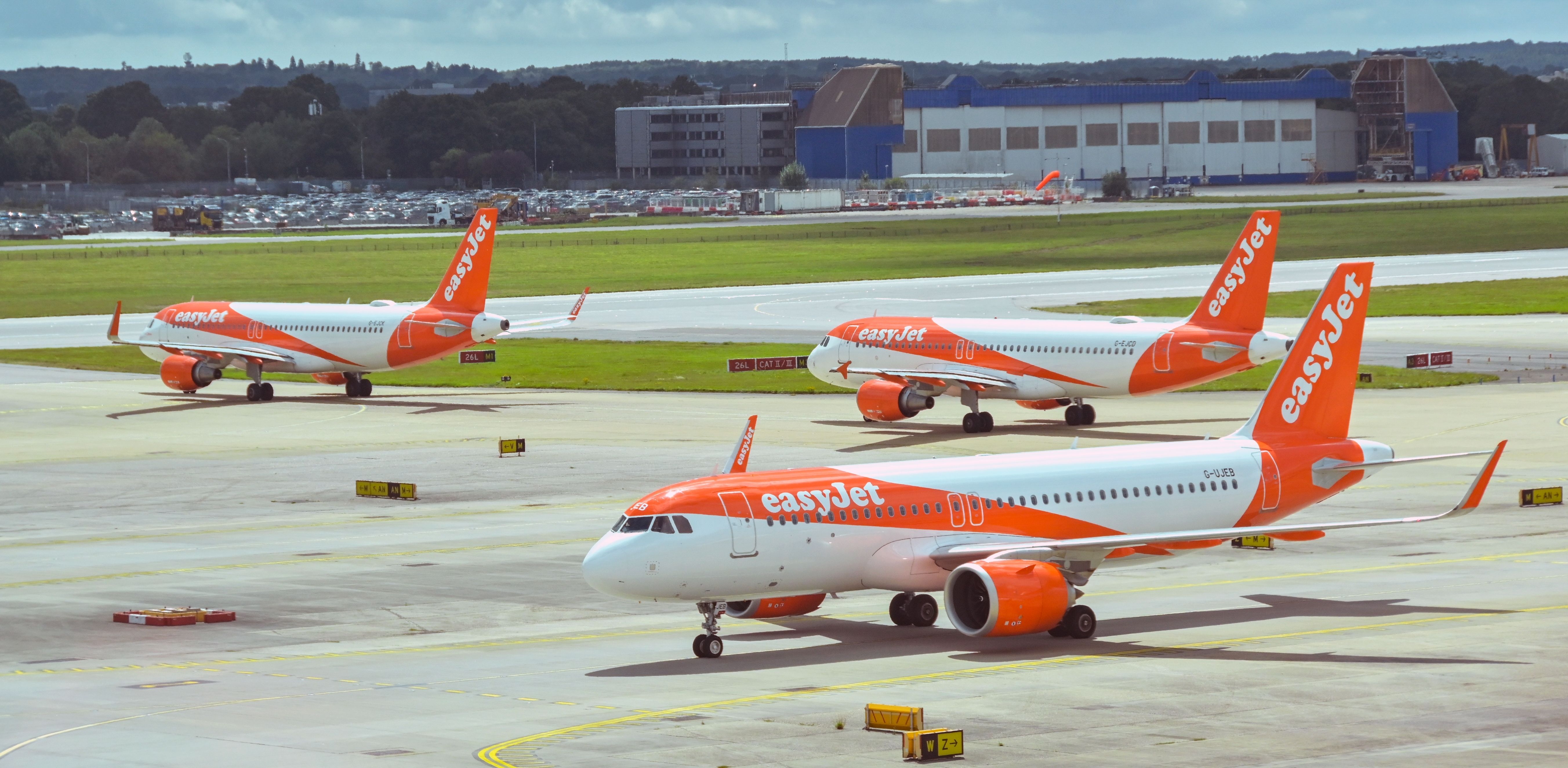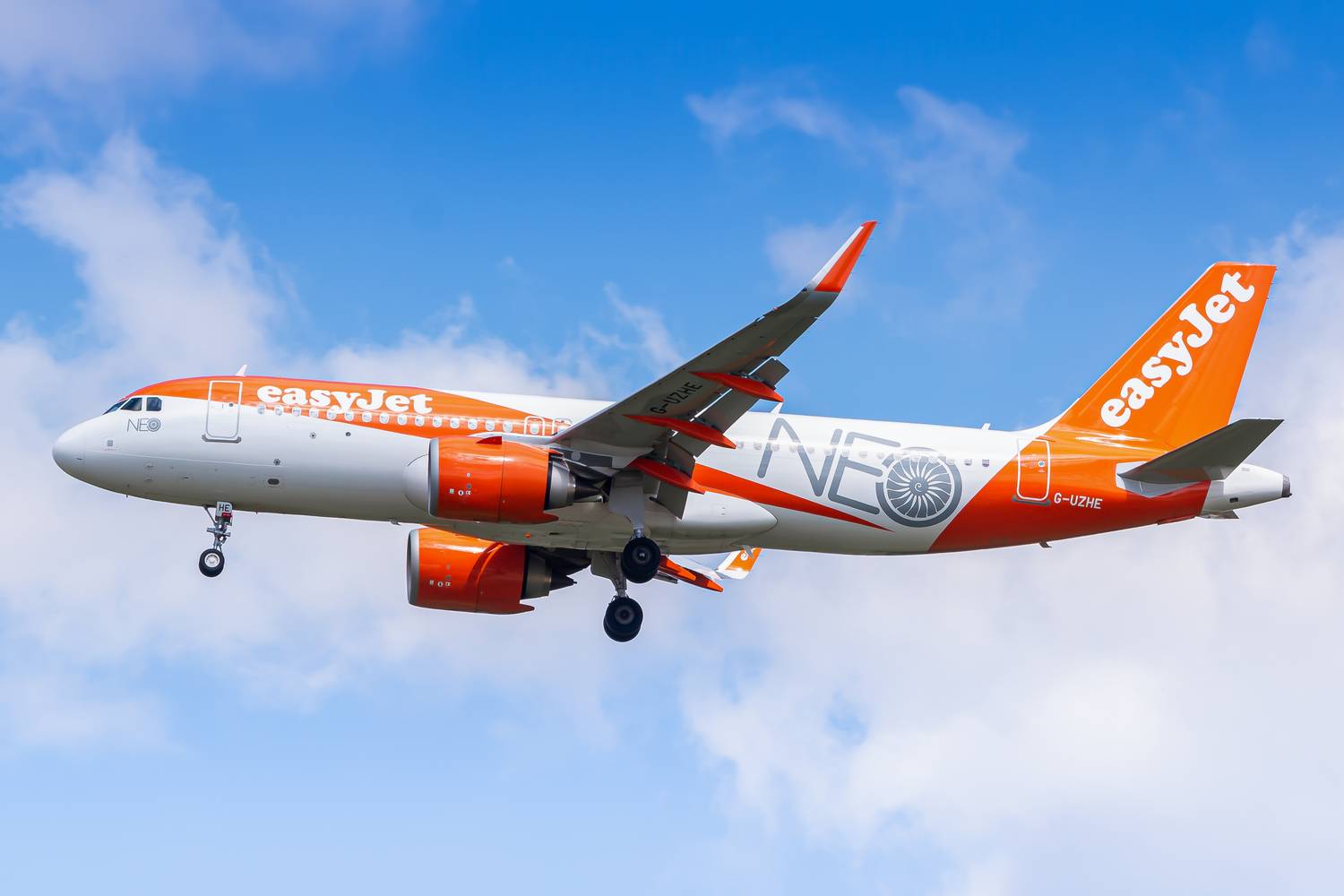SUMMARY
- easyJet reinstates shareholder dividends as it ends FY2023 with record-breaking profit before tax (PBT) in H2 FY2023.
- Despite the war in Israel, the group still expects a positive FY2024.
- easyJet’s fleet upgauging continues with orders for more Airbus A320neo family aircraft, including the A321neo.
SIMPLEFLYING VIDEO OF THE DAY
easyJet, the United Kingdom (UK)-based low-cost carrier and holiday offer provider, has reinstated shareholder dividends after the group ended its Financial Year (FY) 2023 with a record-breaking H2 profit before tax (PBT). Currently, the group’s board proposed an ordinary dividend of GBP0.45 ($0.57) per share, which would amount to a total of GBP34 million ($42.9 million), representing 10% of the after-tax headline profit.
Positive outlook
easyJet expects its positive results to continue since it expects to pay out a dividend representing 20% of the after-tax headline profit in FY2024. Nevertheless, the group ended FY2023, which ended on September 30, 2023, with a net profit of GBP432 million ($545.5 million), while the airline ended the period with an earnings before interest and taxes (EBIT) per seat of GBP3.94 ($4.98), compared to a negative EBIT per seat of GBP0.43 ($0.54) in FY2022.
Check out all the latest European aviation news here
Speaking about the results, Johan Lundgren, the Chief Executive Officer (CEO) of easyJet, said that the group’s record-breaking summer performance showcased the success of its strategy and that demand for easyJet services, including flights, remains strong.
“We see a positive outlook for this year with airline and holidays bookings both ahead year on year and recent consumer research highlights that around three quarters of Britons plan to spend more on their holidays versus last year with travel continuing to be the top priority for household discretionary spending.”
Looking forward, easyJet noted that FY2024 started strong with year-on-year (YoY) profit growth in October 2023, with revenue per seat on early bookings between Q2 and Q4 FY2024 “pleasingly ahead of last year.” However, the war in Israel will have an impact on the group’s results. The planned winter 2023/2024 schedule included flights to Israel, Jordan, and Egypt represented 4% of the capacity and 10% of Available Seat Kilometers (ASK). The airline has suspended flights to Israel and Jordan.
In addition, easyJet observed an industry-wide drop in near-term flight searches, “though this seems to be coming back with a recent improvement in trading.” As a result, the group does not expect to improve its Q1 YoY result, yet current bookings for summer 2024, “coupled with supply constraints in Europe, provide a positive outlook for the year as a whole.”
 Upgauging fleet
Upgauging fleet
Meanwhile, the low-cost carrier has continued to upgauge its fleet, which previously was based mainly on the Airbus A319. As of September 30, the airline had 336 aircraft, 16 more than on September 30, 2022. This has resulted in the airline deploying 14% more seats, growing its capacity from 81.5 million to 92.6 million while carrying 69.7 million and 82.8 million passengers in FY2022 and FY2023, respectively.

Photo: Lukas Wunderlich | Shutterstock
easyJet highlighted that it already has 69 Airbus A320neo family aircraft, split between 54 A32neo and 15 A321neos, with an existing order book for a further 158 A320neo family aircraft. In October 2023, the carrier ordered another 257 aircraft from the European plane maker, split between 157 firm and 100 options. The latest order will allow the airline to completely replace its A319ceo and half of its A320ceo aircraft, of which it has 95 and 172, respectively. easyJet is still negotiating with CFM to use the LEAP-1A for the ordered A320neo family aircraft. At the same time, it has also converted 35 orders for the A320neo into the A321neo, which, alongside the 257 aircraft order, would deliver “lower fuel burn, CO2 emissions, and operating costs per seat” compared to its current fleet composition.




















